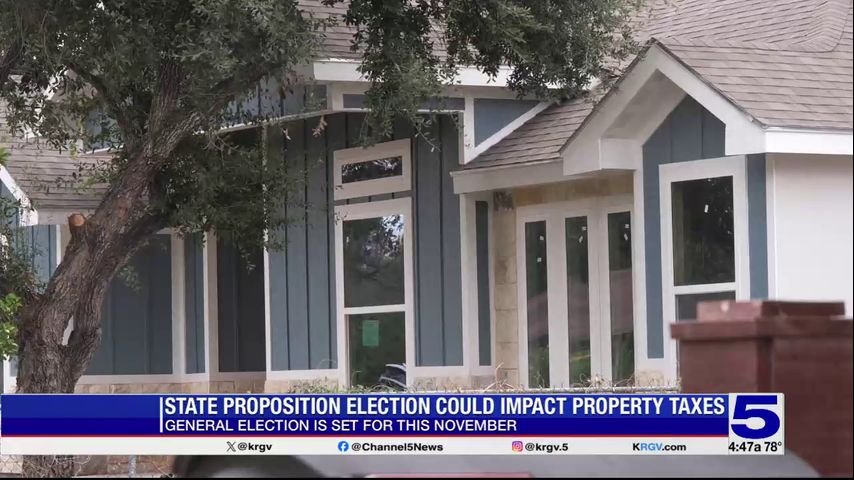Texas Proposition 13: A Game Changer for Property Taxes
Introduction
In the upcoming November election, Texas voters will encounter a significant state proposition that promises to alter the landscape of property taxes across the state. As property values continue to surge, particularly in the Rio Grande Valley, many homeowners are feeling the financial strain from rising tax bills. Proposition 13 aims to address these concerns while raising crucial questions about funding for local school districts.
The Rise in Property Values
Year after year, Texas families have watched property values escalate. According to Jorge Gonzales, a representative from the Hidalgo County Appraisal District, even though the real estate market has slowed, property value increases are still substantial, averaging four to six percent. Homeowners are experiencing tangible financial repercussions, leading to increased tax responsibilities that many find burdensome.
What is Proposition 13?
Proposition 13 seeks to raise the homestead exemption from $100,000 to $140,000. If approved, homeowners would enjoy a significant reduction in the amount of their home’s value that is subject to taxation for school district maintenance and operations. Political Science Professor Mark Murray from South Texas College explains that this proposed change would allow homeowners to shield $140,000 of their property value from taxation, directly impacting their annual tax bills.
Implications for Homeowners
If Proposition 13 receives voter approval, residents could experience savings reflected in their property tax appraisals as early as 2026. This shift in policy represents a potential financial relief for numerous Texas homeowners, particularly in areas where property values have soared.
Impacts on School Funding
While many homeowners are likely to welcome the benefits of Proposition 13, the proposition creates a ripple effect concerning school funding. Murray emphasizes the financial strain this could impose on school districts. With a reduced tax base, schools may find themselves in a precarious position, leading to potential deficits and requests for new bond measures aimed at repairing school properties and funding essential services.
Will Schools Suffer?
The legislation ensures that there is a state fund designed to reimburse school districts for any revenue losses incurred due to the increase in the homestead exemption. However, uncertainty looms over the adequacy of this fund. Will it cover the financial gaps, or will local schools be left scrambling for resources? This is a crucial question that voters must consider before making their decision on Proposition 13.
Timeline and Voting Process
Early voting is set to commence on October 20, 2025, with Election Day falling on November 4, 2025. These dates mark a pivotal moment for Texas voters who will shape the future of property tax policies in the state.
Conclusion
As Texas faces the prospects of rising property taxes amid escalating home values, Proposition 13 represents both an opportunity for homeowners and a challenge for educational institutions. With the election just around the corner, the conversations surrounding this key proposition are sure to intensify, making it critical for voters to stay informed. To dive deeper into the nuances of Proposition 13 and its potential impacts, residents can explore resources like the Texas Secretary of State and local news outlets.
For more detailed insights into the local impacts of property taxes, consider reading articles on Texas Property Tax System and School Funding in Texas.
This important proposition could redefine financial obligations for homeowners and impact the future of educational funding in Texas. Make sure your voice is heard this November!


